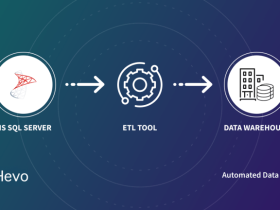Introduction
For nonprofit organizations, Q4 isn’t just about fundraising pushes or year-end reports — it’s about preparing for the audit cycle.
Whether your charity reports to the Canada Revenue Agency (CRA) or an independent board, strong nonprofit audit preparation ensures your financial information stands up to scrutiny.
The difference between a smooth audit and a stressful one often comes down to what you do before year-end.From updating internal controls for nonprofits to reconciling bank accounts and reviewing nonprofit financial statements, proactive planning saves time, stress, and future penalties.
This guide covers exactly what nonprofits and charities in Canada should do before December to ensure full nonprofit compliance and minimize CRA charity audit risks heading into 2026.
- Why Q4 Audit Preparation Matters
By Q4, your organization has already run three-quarters of its programs, processed dozens of donations, and prepared its annual filings. That’s exactly why this is the right time to pause, organize, and prepare for audit season.
Strong audit readiness leads to:
- Transparency and accountability with donors and regulators
- Accurate, audit-ready books for your board members
- Clean financial statements aligned with generally accepted accounting principles (GAAP)
- Early detection of reporting gaps before year-end
Think of year end audit preparation as the foundation for your 2026 annual report. The more organized your financial record now, the smoother your next financial audit for charities will be.
- Understanding Audit Requirements for Nonprofits
The audit requirements for nonprofits in Canada depend on your structure, size, and revenue.
Registered Canadian charities must:
- File the T3010 annual return to the Canada Revenue Agency (CRA).
- Maintain detailed records of financial transactions, donations, and grants.
- Follow approved accounting standards such as ASNPO (Accounting Standards for Not-for-Profit Organizations).
Larger nonprofits or those receiving public funding may require an independent audit by a licensed CPA.
Smaller organizations might undergo a review engagement, which is less intensive but still requires accurate financial information and documentation.
Regardless of size, all nonprofits should aim to be audit ready year-round.
That means your accounting system and processes must consistently support accuracy, completeness, and compliance.
- Core Steps in Nonprofit Audit Preparation
The first step in nonprofit audit preparation is to organize financial data and documentation.
A well-planned Q4 audit checklist looks like this:
| Step | Task | Goal |
| 1. | Reconcile all bank accounts and investment records. | Ensure your ending balances align with the statement of financial position. |
| 2. | Review all financial transactions for the year. | Identify duplicates, missing receipts, or incorrect categorizations. |
| 3. | Verify donor and grant funding allocations. | Confirm restricted vs. unrestricted fund treatment. |
| 4. | Update nonprofit financial statements. | Align with GAAP or ASNPO reporting standards. |
| 5. | Review internal controls for nonprofits. | Ensure separation of duties and authorization policies are current. |
| 6. | Document board member approvals and meeting minutes. | Maintain governance evidence for auditors. |
| 7. | Confirm payroll, benefits, and vendor data. | Prevent late adjustments to financial activities. |
Completing this checklist before December gives your executive directors and auditors confidence in your readiness.
- Charity Audit Checklist for Q4
To go deeper, here’s a specific charity audit checklist designed for Q4 audit planning.
- Review Accounting Software Setup
Make sure your accounting software categories match CRA reporting lines. Separate Canadian charity income streams (e.g., fundraising, program revenue, grants). - Check Balance Sheet Accuracy
Review your balance sheet (also called a statement of financial position) for any outdated assets, prepaid expenses, or unrecorded liabilities. - Confirm Donor Restrictions
Verify restricted funds are spent according to donor intent — auditors and the CRA review this closely. - Match Receipts to Disbursements
Match donation receipts with related expenditures to demonstrate transparency and accountability. - Ensure Documentation for Large Transactions
Maintain invoices and approvals for all major purchases or grants. - Prepare Governance Records
Keep board member meeting minutes, approvals, and strategic decisions ready for auditors. - Generate a Trial Balance and General Ledger
Review both for unposted entries, rounding errors, or stale transactions.
By December 31, your books should reflect every transaction — from bank interest to petty cash.
- Strengthening Internal Controls Before Year-End
Auditors look closely at internal controls for nonprofits because they safeguard assets and ensure financial integrity.
Here’s how to strengthen them before your next audit:
- Segregate Duties – No single person should authorize, record, and review the same transaction.
- Review Access Controls – Restrict who can edit financial data in your accounting system.
- Regular Reconciliations – Monthly reconciliation of bank accounts and subledgers keeps you audit-ready.
- Document Approval Policies – Written policies create clarity for both staff and auditors.
- Track Restricted Funds – Separate accounts or tags in your accounting software help track donor restrictions easily.
Improved internal controls don’t just satisfy audit requirements for nonprofits — they also build donor trust and operational resilience.
- Common Audit Red Flags to Avoid
Avoiding audit trouble starts with knowing where issues typically arise. Here are the most common warning signs during audits financial for nonprofits:
- Missing or inconsistent documentation – Every transaction must link to a valid invoice or approval.
- Unreconciled accounts – Differences between bank and ledger balances.
- Unrecorded grants or deferred revenue – Revenue recorded too early or without proper recognition.
- Inactive or unreviewed accounts – Dormant fund balances raise red flags.
- Lack of audit trail – An incomplete financial record can delay or fail audits.
Nonprofits should review these areas each quarter — not just during year end audit preparation.
- How Orbit Accountants Support Nonprofits and Charities
Orbit Accountants help nonprofit organizations and charities prepare for audits with confidence.
Orbit specializes in accounting and bookkeeping for non profit organizations, CRA charity audit support, and financial audit for charities across Canada and the U.S.
Orbit assists with:
- Setting up accounting systems aligned with GAAP or ASNPO standards
- Performing pre-audit reconciliations for bank accounts, grants, and expenses
- Reviewing financial statements for completeness and compliance
- Preparing a Q4 charity audit checklist and timeline
- Strengthening internal controls and governance documentation
- Guiding executive directors through CRA and funding compliance requirements
With Orbit, your team gains clear processes, accurate financial information, and complete audit readiness for 2026.
Orbit Tip:
Automate donor tracking and reporting using cloud accounting software like Xero or QuickBooks for Nonprofits. Automation saves hundreds of hours during audits and improves transparency for your board members.
FAQs
- What triggers a CRA charity audit?
A CRA charity audit may occur due to irregular filings, missing T3010 reports, or inconsistent financial data. It’s not always punitive — often, it’s to ensure compliance with Canadian charity standards. - What documents should nonprofits prepare for year-end audit?
Prepare reconciliations, financial statements, balance sheets, bank records, and board member approvals. Keep receipts and donation records readily accessible. - How can nonprofits strengthen internal controls?
Review duties, authorization policies, and system permissions. Effective internal controls for nonprofits protect against fraud and reporting errors. - Are all nonprofits required to undergo an external audit?
Not always. Audit requirements for nonprofits depend on revenue, funding agreements, and provincial laws. However, all organizations should remain audit ready. - How can Orbit Accountants help nonprofits prepare?
Orbit builds audit-ready systems, reviews your financial statements, ensures nonprofit compliance in Canada, and guides your executive directors through every step of the process.
Conclusion
Q4 is the perfect time to strengthen your organization’s books, tighten controls, and prepare for audits proactively.
With a clear charity audit checklist, accurate nonprofit financial statements, and effective internal controls, you’ll move into 2026 with confidence and compliance.
Orbit Accountants supports Non-profit Bookkeepingin every phase — from audit requirements to financial reporting and CRA filing.
Because in the nonprofit world, transparency and accountability aren’t just compliance goals — they’re the foundation of trust.
Legal Disclaimer
This article is for informational purposes only and does not constitute professional accounting or legal advice. Always consult a qualified accountant or auditor before making compliance decisions. Orbit Accountants assumes no liability for actions taken based on this information.








































Leave a Reply